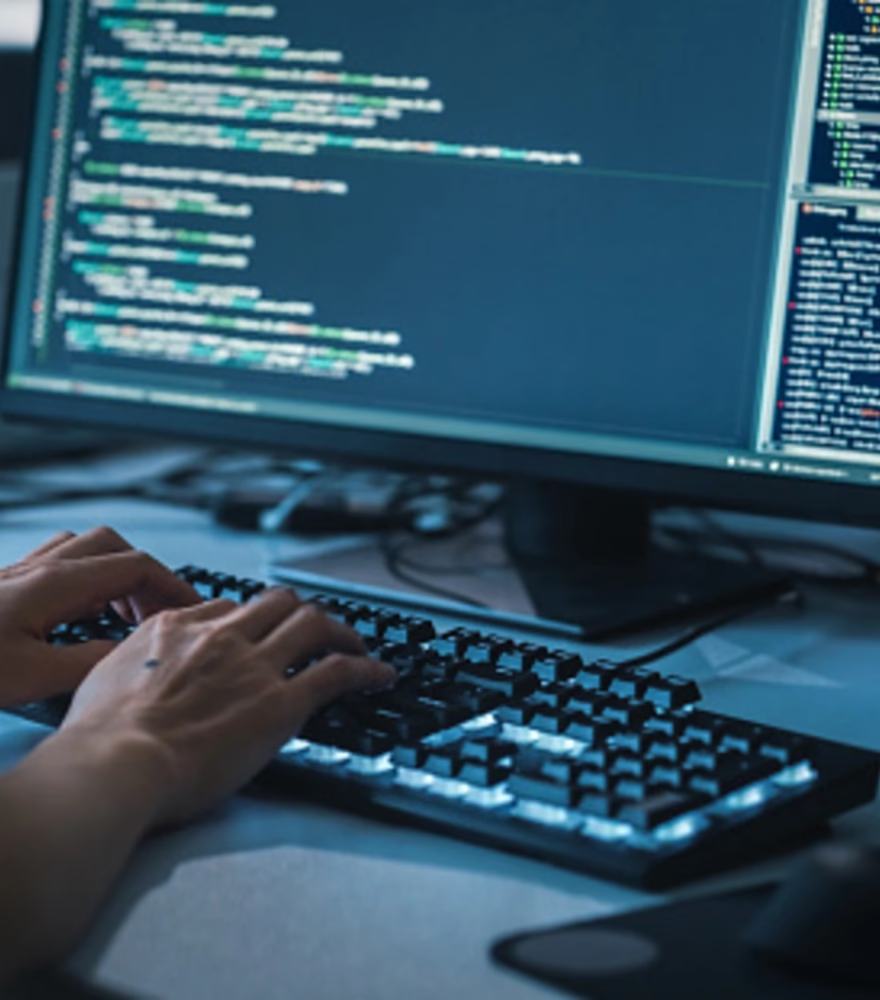
Technology is developing at a never-before-seen rate, and 2025 has brought about groundbreaking discoveries and revolutionary developments. From quantum computing to artificial intelligence (AI), the technological landscape is poised to transform industries, change how we live and work, and open up new avenues for the future. The main technological trends of 2025, their ramifications, and what to watch for when these developments take place will all be covered in this blog.
To keep you ahead of the curve, we have listed some of the most excellent technological trends of 2025 –
With generative AI taking centre stage, AI continues to be at the forefront of technological innovation. By 2025-2025, AI will have improved in efficiency, intuition, and ability to manage challenging jobs in a variety of industries. Software development, customer support, and content production are all being revolutionised by generative AI models like Google’s Gemini and ChatGPT-4. Businesses use AI to automate tasks, provide individualised user experiences, and enhance decision-making. For example:
From theoretical studies to practical uses, quantum computing is advancing. The goal of quantum supremacy, which would make tackling complicated problems tenfold faster, is being pursued by startups and major corporations like Google and IBM. In 2025, quantum computing was being investigated by sectors like finance, logistics, and pharmaceuticals for complex simulations, cryptography, and optimisation issues.
Quantum computing is revolutionary because it can process massive volumes of data at speeds that are unthinkable for traditional computers. Quantum computers are used in drug discovery to model atomic-level molecular interactions, which speeds up and improves the creation of medications. Quantum computing is being used by financial organisations for high-frequency trading, fraud detection, and portfolio optimisation. As quantum-resistant encryption techniques are being created to thwart prospective cyber threats, cryptography and cybersecurity are also reaping the benefits of quantum developments.
Edge computing is becoming more and more necessary as the number of IoT devices increases. Instead of depending on cloud-based data centres, edge computing processes data closer to the source, thereby lowering latency and increasing efficiency. As 5G networks become more widely used, edge computing capabilities are further improved, enabling companies to use real-time data to inform decisions.
Edge computing is becoming a crucial component of contemporary digital infrastructure by decreasing data transfer times and easing the strain on cloud servers.
Cybersecurity solutions are developing to safeguard sensitive data and digital assets as a result of more complex cyber threats. To reduce risks and stop cyberattacks, organisations are putting AI-driven cybersecurity, zero-trust architectures, and biometric authentication into practice.
Important Features:
Since ransomware attacks and data breaches continue to jeopardise digital ecosystems, cybersecurity is a significant responsibility for both consumers and organisations.
With businesses using eco-friendly procedures to lessen their carbon footprint, sustainability is increasingly becoming a major priority in technology. Initiatives for green computing seek to reduce electronic waste, encourage the use of renewable energy sources, and increase data centres’ energy efficiency.
Digital interactions are being rapidly transformed by Extended Reality (XR), a term that encompasses Virtual Reality (VR), Augmented Reality (AR), and Mixed Reality (MR). The Metaverse, an XR-powered virtual world, is becoming a popular venue for social interactions, business meetings, games, and even education. In order to make immersive experiences more widely available, tech behemoths like Meta, Apple, and Microsoft are investing in XR gear, such as AR glasses and VR headsets.
XR and the Metaverse will continue to develop, connecting the real and virtual worlds, thanks to developments in AI and 5G. These technologies will revolutionise human interactions and commerce as more companies adopt them, enabling virtual encounters to be as smooth as those in the real world.
Digital twins are virtual representations of actual systems, processes, or objects that allow for risk-free online testing, simulation, and monitoring. Digital twins are used by sectors like manufacturing, healthcare, and smart cities to anticipate possible problems and optimise operations as a result of AI and IoT breakthroughs.
Digital twins will grow increasingly complex as AI and high-speed computers develop, enabling companies to optimise their processes with accuracy and efficiency. Digital twins transform industries by bridging the divide between the digital and physical worlds through a data-driven approach to decision-making.
Due to its decentralisation, security, and transparency, blockchain technology—originally connected to cryptocurrencies like Bitcoin—is currently being embraced by a number of businesses. Blockchain is revolutionising the storage and exchange of data in a variety of fields, including supply chain management and medical records.
Voting systems, intellectual property protection, and even digital identity verification are among the applications of blockchain technology. Industries stand to gain from increased efficiency, security, and accountability in digital transactions as governments and businesses investigate blockchain applications beyond cryptocurrency.
Urban mobility is changing due to the emergence of AI-powered transportation systems and self-driving automobiles. While sophisticated traffic control systems maximise citywide mobility, companies like Tesla, Waymo, and General Motors are pushing the limits of autonomous driving.
Autonomous vehicles will become safer and more dependable as 5G networks and AI develop. A future of seamless mobility will be made possible by the integration of smart transport infrastructure, which will also increase traffic flow and fuel efficiency while lowering accidents.
Genetic engineering, prostheses, and healthcare are all being revolutionised by biotechnology and human enhancement. Biotech innovations, such as CRISPR gene editing and brain-computer interfaces (BCIs), are improving human potential and curing ailments that were thought to be incurable.
Biotechnology and human enhancement have the ability to completely reshape human development with ongoing advancements. The way these technologies are incorporated into society will be greatly influenced by ethical issues and laws.
By combining cloud computing with features specific to each industry, industrial cloud platforms (ICPs) are revolutionising digital solutions for particular sectors. ICPs address the particular operational, security, and regulatory requirements of sectors, including manufacturing, healthcare, and finance, in contrast to general cloud services. These platforms use artificial intelligence (AI), machine learning, and big data analytics to automate regulatory compliance, provide predictive maintenance, and create customised processes. Industry-specific clouds are facilitating smooth scalability, boosting data-driven decision-making, and enabling cooperation across supply chains in 2025. These solutions are being used by businesses to speed up digital transformation while adhering to rules and industry norms.
Important Features:
By linking smart devices, increasing automation, and improving data collecting, the Internet of Things (IoT) is still transforming businesses. By integrating AI, IoT has fairly progressed in 2025, allowing for real-time health monitoring in medical applications, predictive maintenance in manufacturing, and improved security in smart cities. IoT efficiency is increasing as a result of 5G network expansion, which enables seamless connectivity across large infrastructures. Furthermore, edge computing, which lowers latency and improves real-time processing capabilities, is gaining popularity. IoT-driven solutions are increasing efficiency, cutting costs, and optimising operations in everything from smart homes to industrial automation.
Important Features:
Keeping up with new trends is now necessary rather than optional because technology is developing at an unparalleled rate. Whether you’re an entrepreneur, tech enthusiast, or business leader, being ahead of the curve enables you to leverage innovation for competitive advantage, efficiency, and growth. It is more important than ever to keep up with and embrace major technological advances as we end 2025.
Cloud computing, automation, and artificial intelligence (AI) are examples of emerging technologies that are revolutionising commercial operations. AI-powered solutions improve decision-making, decrease manual labour, and streamline processes. In a similar vein, cloud computing enables companies to grow quickly while cutting expenses.
Threats from cyberspace are growing along with technology. Cybersecurity trends like zero-trust architecture, AI-driven security solutions, and blockchain-based security frameworks are becoming essential as more and more firms go digital. In order to preserve client trust and safeguard sensitive data, organisations need to keep ahead of the curve by implementing these advances.
Customer involvement in 2025 has been characterised by immersive experiences and personalisation. Artificial intelligence (AI)-powered chatbots, virtual reality (VR), and augmented reality (AR) improve user interactions and produce smooth, captivating experiences. Businesses will have a competitive advantage in the online market if they include these technologies in their customer service plans.
Sustainability is becoming a crucial factor for both customers and businesses, not just a trendy term. The future is being shaped by green technologies, such as carbon capture systems, sustainable computing, and AI models that use less energy. Businesses that put an emphasis on eco-friendly solutions not only help the environment but also draw in investors and customers who care about the environment.
As remote and hybrid work models become more common, the nature of work is changing. Businesses are adapting with the aid of technologies like 5G, cloud collaboration tools, and AI-driven HR solutions. Purchasing these technologies guarantees improved communication, more efficient processes, and increased output for remote workers.
Emerging technologies are transforming entire industries, from manufacturing and retail to healthcare and finance. For example, blockchain is increasing financial transaction transparency, and AI in healthcare is facilitating quicker diagnostics. Companies that use these innovations acquire a competitive edge in their industries.
The major technological developments of 2025 have the potential to significantly alter our world. These developments, which range from AI and quantum computing to sustainable technology and the metaverse, present both fascinating potential and difficult problems. People and companies may use these trends to spur innovation, enhance lives, and build a better future by being knowledgeable and flexible. Pay attention to these advancements and get ready to embrace the revolutionary possibilities of technology in 2025 and beyond.

At TAV Tech Solutions, our content team turns complex technology into clear, actionable insights. With expertise in cloud, AI, software development, and digital transformation, we create content that helps leaders and professionals understand trends, explore real-world applications, and make informed decisions with confidence.
Content Team | TAV Tech Solutions
Let’s connect and build innovative software solutions to unlock new revenue-earning opportunities for your venture









